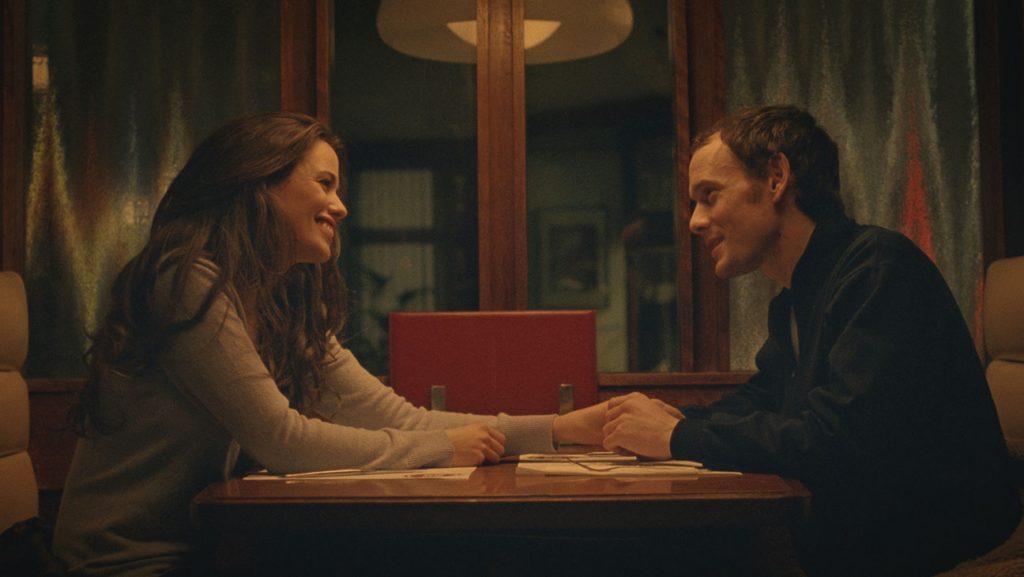Empty Passion, by Darrell Tuffs
10 Nov
What’s the one thing that could make or a break a bleak romantic drama focused on the unstoppable love of two despairing individuals? The answer… chemistry. Unfortunately for Gabe Kliger’s European art/indie feature Porto (2017), it had none.
It’s not that Porto is a bad film necessarily, indeed, I enjoy parts of its filmmaking very much. An inventive and considerate camera does its best to dissect the strangely incoherent and dreamscape world of the film. I even caught sight of a few early Truffaut/Godard style camera moves, shots that seemed to reminisce the film’s own appreciation for new wave works such as Jules and Jim (1962) or A Woman Is a Woman (1961). Technically, the film stands on its own, with just enough cinematic beauty and creativity to run its course. The problem is this… emotionally, Porto seemed to think I was way more invested in its character’s and narrative than I actually was.
Let’s start at the beginning. Produced by Jim Jarmusch (very interested so far) the film stars Anton Yelchin (still very interested) and Lucie Lucas (I’m all ears) as two lost individuals searching for meaning and passion in their otherwise emotionally solitary lives. Yelchin’s ‘Jake’ is more unknown, a secluded loner travelling from location to location as a cheap labourer. Lucas’s ‘Mati’ has a family, a seemingly supportive husband and a child, but regardless, is still as disconnected from the ever-moving world around her as Jake is. The film, put simply, is about an unstoppable love; the narrative focuses on Mati’s emotional dilemma of leaving her partner, her structured and predictable, yet ultimately unfulfilling life for the exciting prospect of Jake’s almost obsessive admiration for her (where do I sign up?). To add to this, both main actors create perfectly plausible characters, each bringing to their roles an appropriately painful emotional hole to be filled by the presence of one another. Everything falls neatly into place for an interesting and thoughtful movie – but wait… here comes the script to kick down the set and chew on the scenery.
Maybe I was being a little harsh in suggesting the performers had no chemistry, there’s a glimmer here and there, but the script’s dialogue and narrative does all it can in stamping to death on what little they can provide. The film has three chapters, one following Jake before and after he spends the night with Mati, one following Mati before and after she spends the night with Jake, and one following them both in showing the night they keep referencing throughout the first two chapters. The problem is that, the first two chapters find it difficult to portray Jake and Mati as already romantically devoted since the film hasn’t invested any time in getting to know them as a unit, but going further, it doesn’t give much access to them as individuals either… who are they as people? What do they most fear? What are their hopes and dreams for the future? We need to know at least something about them before the constant whisperings of ‘sweet nothings’ has any impact whatsoever.
Because of this, the film’s script goes on to assume its audience are more invested than they actually are. The apparently unstoppable and obsessive love between these people just ends up feeling forced, more like an act of desperation and hopelessness than one of love and passion. When Jake turns to Mati and lovingly declares “I’m not even trying to love you, I just… love you.” I was meanwhile thinking, “I’m not even trying to find this scene empty, it’s just… empty.” At times, the script seems to resort to screaming its message directly into our ears; “I know what you’re going to say and you know what I’m going to say before either one of us even says it… and I’ll tell you the really freaky part, it doesn’t feel like a matter of choice.” Lines like this feel like they’ve dropped directly out the mouths of Chanel’s marketing team – the latest efforts to sell their new range of seductive smelling perfumes. The over-dramatized dialogue might have worked if Jake and Mati’s love was presented through hardship and adversity, through the sometimes stress and pressure that being in a romantic relationship can bring. Instead, it turns out just being way too easy; they kept seeing each other in bars and on farms, they spoke, they had sex, kissed a little… yet because of that we’re expected to invest in them as a couple steeped in caring love? Love evolves through life experience, through two people enjoying each other’s discovered positives, yet also overcoming each other’s uncovered negatives. I didn’t hate the film by any means, but I’m afraid in order to stop its script feeling hollow, more work was needed in developing its central relationship into something I could really invest in. And so, by the film’s end, as much as I really wanted to, I couldn’t care less if Jake and Mati got together or not.
Something special was possible for Porto, its talent, narrative and aesthetic all work on a relatively high level, but without that one thing – without that chemistry, the film’s heart and soul is missing. What we’re left with is a shell that seems to enjoy itself more than we are enjoying it. The film is like being forced to watch a super energetic and exaggerated musical just after a loving family member has died tragically – you can understand what the fun musical is trying to do, but because of the disconnect from how you’re feeling, it just comes off as annoying and frustrating.




No comments yet